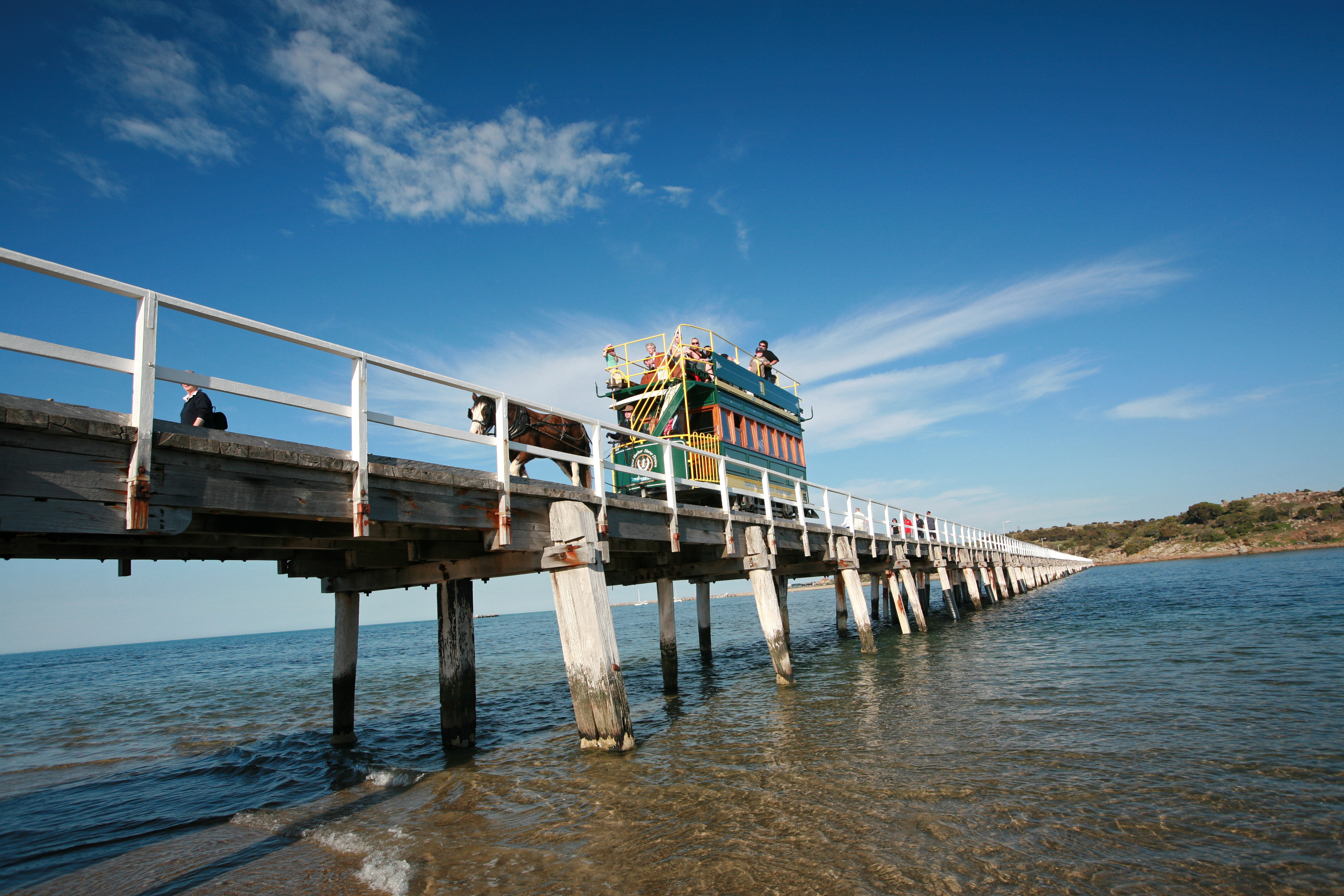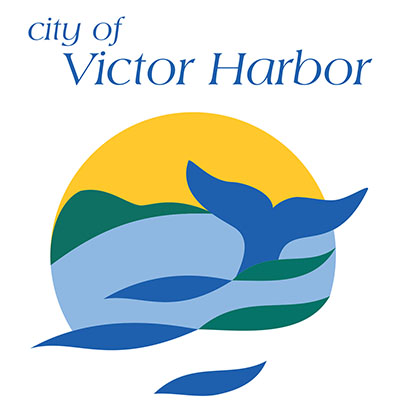City Profile
The City of Victor Harbor
A vibrant, thriving coastal city nestled on the Fleurieu Peninsula

The coastal town of Victor Harbor is the largest population centre on the Fleurieu Peninsula and serves as the major district centre for the Southern Fleurieu.
Victor Harbor enjoys a high standard of living and has a lot to offer residents and visitors alike.
Our relaxed lifestyle, strong sense of community, stunning natural environment and township character are highly valued.
Victor Harbor is an excellent place to live, work, invest and do business. It is vibrant and growing, and there are many things to look forward to.
For thousands of years, the Ngarrindjeri and Ramindjeri people hunted and gathered in the region they called ‘Wirramulla’. The fertile lands supported huge animal populations while the waters were sheltered and rich with life. Among the local dreamtime stories, Nulcoowarra or Kaiki (the Ngarrindjeri name for Granite Island) has tremendous spiritual significance, as does the southern right whale, told in the Kondoli dreaming. The first non-Indigenous settlers approved of the region for the same reasons – rich lands, sheltered waters and whales.
The famous encounter between Captain Matthew Flinders of the British sloop Investigator and Captain Nicholas Baudin of the French ship Le Geographé occurred in waters off Victor Harbor over 200 years ago. The ships sheltered in the bay, which was later named Encounter Bay by Captain Flinders.
In 1837, Captain Richard Crozier in command of the Cruizer-class H.M.S. Victor anchored just off Granite Island on his way back to Sydney and India. Captain Crozier named the place ‘Victor Harbour’ (the original spelling of the town name) after his ship.
About the same time as Captain Crozier’s stop over, two whaling stations were established, one at Rosetta Head (popularly known as “The Bluff”) and the other near the point opposite Granite Island. Whale oil became South Australia’s first export. From 1839 the whaling station was managed for a time by Captain John Hart, a later Premier of South Australia. Whaling stations continued trading until around the mid-1860s.
Victor Harbor’s adored natural surroundings and nearness to Adelaide have made the City a favoured holiday destination for many years. The coastal City boasts both coastal and countryside scenery within a comfortable Mediterranean-type climate.
The town centre overlooks the pleasant waters of Encounter Bay, where Southern Right Whale mothers and calves often frolicked between May and October. On land, Victor Harbor is recognised for several significant natural landmarks, including the rock outcrop known as The Bluff and scenic Granite Island. The island is most notably known for the iconic horse-drawn tram that is pulled by magnificent Clydesdales across the 630-metre causeway to Granite Island.
The City has beautifully preserved heritage buildings and a rich colonial heritage, which can be admired by visiting the SteamRanger, an operational heritage rail service and major tourist attraction. A growing arts, culture and events scene, coupled with diverse recreational opportunities, also attracts travellers from near and afar.
Being the economic hub of the southern Fleurieu region, Victor Harbor attracts businesses of varying sizes and industries. Tourism is seen as a significant contributor to the local economy, with 1.2 million annual visitors injecting $163 million each year. Residents and visitors can also benefit from expanding retail and hospitality offerings in the City.
In 2023, the City of Victor Harbor engaged Future Urban to put together a City profile that includes Social and economic snapshots, population and housing, economy, future population trends, etc.
The City of Victor Harbor subscribes to REMPLAN which provides a series of online analytical tools and information resources for economic development and planning. Based on some of this information, an economic profile has been developed for the City of Victor Harbor and can be downloaded below:
- Victor Harbor Economic Profile - FACT SHEET
- Victor Harbor Economic Profile - SUMMARY REPORT
- Victor Harbor Economic Profile - FULL REPORT
If you are interested in more specific data further to the above, please contact Council's City Activation team on 08 8551 0500 or by emailing localgov@victor.sa.gov.au.
The City of Victor Harbor is home to a welcoming community with friendly spirit and strong family values.
Over the years, the peaceful coastal lifestyle of Victor Harbor has been known to attract a mature, retiring population. The average age of people in Victor Harbor is 58 years, with 39 per cent of the population aged over 65 years.
The charm of the Victor Harbor community is underpinned by a strong culture of volunteering. Around one in three people in the City of Victor Harbor volunteer in some capacity, and the Council itself is also fortunate to have a team of around 500 volunteers who assist with the delivery of services, programs and initiatives.
While big picture statistics reflect an older population, a growing number of young families and diverse individuals have chosen to live, work and invest in the City in 2021. With the COVID-19 pandemic encouraging people across the globe to reflect upon their priorities and values, the lure of living regional has seen many families settle in the area. Schools in the City of Victor Harbor have almost 2,000 students combined, who are drawn from across the southern Fleurieu Peninsula.
Victor Harbor’s close proximity to metropolitan Adelaide has also seen an emergence of residents who live in Victor Harbor to enjoy a leisurely coastal lifestyle and commute to the metropolitan area for work.
For more information about the City of Victor Harbor's demographics, you can visit the below sources:
Informed Decisions - Community Profile
In 2023, the City of Victor Harbor engaged Future Urban to put together a City profile that includes Social and economic snapshots, population and housing, economy, future population trends, etc.
If you are interested in more specific data further to the above, please contact Council's City Activation team on 08 8551 0558 or by emailing localgov@victor.sa.gov.au.
Council Background
On 31 October 1975, the District Council of Encounter Bay and the Corporation of Victor Harbor amalgamated to form the District Council of Victor Harbor. The amalgamation recognised the strong communities of interest that existed between the two former local government areas and the resource, cost and efficiency benefits that would be generated by the combining of the two councils.
Potential for further amalgamation was considered in 1996-1997 – this time involving the Local Government areas of Victor Harbor, Port Elliot, Goolwa, Strathalbyn, Yankalilla and Willunga. Although some council mergers did result from these extensive investigations, Victor Harbor remained an independent entity.
On 1 February 2000, the District Council of Victor Harbor became known as the City of Victor Harbor. The new name, new logo and new direction was a reflection of the dynamic changes occurring within the community and the significance of Victor Harbor as the regional centre for the southern Fleurieu Peninsula.
Council Today
The City of Victor Harbor is located on the coast of South Australia’s Fleurieu Peninsula, about 80 kilometres south of the Adelaide CBD. It is the largest population centre of the Fleurieu region and considered to be the hub of the southern Fleurieu Peninsula.
The Council area encompasses 346 square kilometres, sharing boundaries with Alexandrina Council to the east and the District Council of Yankalilla to the west.
The Council owns and operates the Victor Harbor Public Library, Victor Harbor Recreation Centre, Old School Building, Town Hall, Victor Harbor Visitor Information Centre, Coral Street Art Space and the South Australian Whale Centre. Council also owns the Victor Harbor and Encounter Bay sports grounds.
The City of Victor Harbor is involved in four subsidiaries. Three are established under Section 43 of the Local Government Act 1999 including Fleurieu Regional Waste Authority, Southern and Hills Local Government Association and Fleurieu Regional Aquatic Centre Authority. These subsidiaries are run along with neighbouring councils to support key elements in the region’s functions.
The fourth subsidiary, the Victor Harbor Horse Tram Authority, was established under Section 42 of the Local Government Act 1999 to oversee the operations of the much-loved horse drawn tram service.

